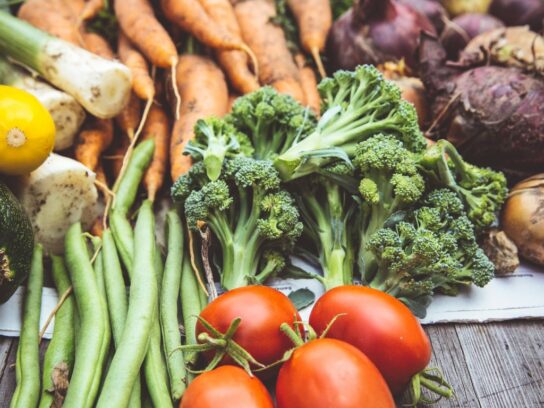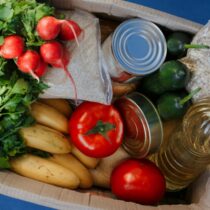
Many people would agree the country and the DMV are now in a post-pandemic phase. While concerns about Covid-19 have waned some, one of the persistent problems that became exacerbated during the pandemic remain. That is the issue of food insecurity. It existed before the pandemic and became heightened during the Covid-19 outbreak. Currently, there’s evidence to suggest that food insecurity is worse now than during the height of the pandemic.
Capital Area Food Bank
The Capital Area Food Bank cites inflation and the rollback of benefits from the federal government’s Supplemental Nutrition Assistance Program (SNAP) last March as the main drivers for the uptick in food insecurity.
A statement released to MCM from the Capital Area Food Bank said in part “a large number of our nonprofit partner organizations, as well as sites where we distribute food directly, have seen increases in the number of visitors since the SNAP rollback in March. Sixty one percent of partners and distribution sites in Montgomery County are reporting an increase in the households they’re serving.”
The Capital Area Food Bank’s most recent report released last year shows 30 percent of residents in Montgomery County have experienced food insecurity. That means at some point during the year, residents did not know how to access their next meal. The Food Bank currently partners with 51 faith-based organizations and nonprofits in Montgomery County. These organizations help collect and distribute food for people in their communities.
Manna Food Center
The Manna Food Center is one of the biggest groups fighting hunger in Montgomery County. It runs a number of programs including one called Farm to Food Bank.
Manna started working with a few farms in the early 2000’s. Those farms are paid to provide a variety of foods that are then distributed to people in need. When federal stimulus money became available during the start of the pandemic in 2020, Manna was able to expand its Farm to Food Bank program. Presently, it contracts with about 30 farms in the County.
Farm to Food Bank Program
Manna’s Farm to Food Bank program produced 207,000 pounds of food last year. The food provided 172,000 meals across the County. The current growing season is in full swing now and goes typically from June to September.
However, the federal government recently rolled back much of its pandemic funding, so Manna has had to turn to other sources for help including the County. Jenna Umbriac is the Director of Programs at the Manna Food Center.
“The County was very aware of the importance of supporting the local food supply chain. We all saw the impacts that the pandemic had on our global supply chain, and how we needed to really invest in our local producers in order to be more resilient, to have a more resilient food system for the next pandemic, and the pandemic after that,” Umbriac said.
Pilot Program
While the County has provided a bulk of the funding for the Farm to Food Bank program, other groups have stepped in including the Healthcare Initiative Foundation (HIF).
“To us, the group has been instrumental as a thought partner. So its funding has helped us to evolve the program. Right now, HIF is providing $50,000 this season for us to pilot contract growing arrangements with two farms and two recipient organizations,” Umbriac explained.
The goal of the program is to see if supplying food from a single farm and delivering it to a single food assistance program benefits both groups.
“The food assistance provider can really keep its finger on the pulse of what’s popular with the residents they are serving,” Umbriac said.
The pilot program will match the Farm At Our House in Brookeville with the Gaithersburg Cares Hub in Gaithersburg. Lewis Orchards in Dickerson will partner with Kingdom Fellowship AME Church in Calverton. Kingdom Fellowship helps serve people in the eastern part of Montgomery County.
AfriThrive Helps Battle Food Insecurity
AfriThrive is another group trying to help battle food insecurity in the County. It operates a 2-acre farm in Poolesville.
“Our Cultural Farm Program is a unique initiative aimed at increasing access to healthy, culturally appropriate, and diverse food to people in our community. We understand the importance of healthy food that reflects the cultural backgrounds and preferences of individuals and families. Afrithrive strives to meet those needs through our program. We believe that everyone deserves to have access to food that reflects their cultural identity and tastes. We are committed to making that a reality through our program,” said Truphena Choti, the founder and CEO of AfriThrive.
The fruits and vegetables grown at the farm provide items distributed through AfriThrive’s Food Pantry.
“By ensuring access to culturally appropriate food, we strive to eliminate barriers that may exist for individuals and families in accessing the foods that are meaningful to them,” Choti said.
The group also promotes ethnic pride by teaching people how to garden foods unique to their community. Its gardening program is run through the County’s Parks and Recreation division.
Like many nonprofits, AfriThrive, faces unique challenges. The group is desperately searching to find cold storage and office space to support its mission of addressing food insecurity and promoting sustainable agriculture.
“Cold storage is crucial for preserving surplus produce and preventing it from going to waste. By having access to proper cold storage, AfriThrive can extend the availability of fresh and nutritious food options to the communities it serves,” Choti explained.
Yad Yehuda’s Mission
The nonprofit group, Yad Yehuda, helps people in the Jewish community. The group estimates it helps about 600 people in the County each month. It offers a number of services that include providing Kosher meals through its food pantry and allowing children to access healthy breakfasts and lunches.
The Healthcare Initiative Foundation is supporting both Afrithrive and Yad Yehuda with grants. These groups say the organization’s contributions are invaluable.
“The HIF grant helps us significantly increase available foods in three areas that are identified as the most expensive, culturally significant, and nutritionally crucial for our vulnerable client population. They include: Passover holiday foods, Rosh Hashanah and Sukkot holiday foods, and healthy Kosher school lunch box foods,” said Stephanie Savir, who is Director of Operations at Yad Yehuda.
Healthcare Initiative Foundation
Battling food insecurity is an important plank of HIF’s mission. A spokesperson for the group said, “Food security is a social determinant of health and unequal access to healthy, culturally important, and affordable foods contributes to the health inequities and disparate health outcomes we see in our County.”
Call For Donations
Residents also can help make a difference. People interested in donating or volunteering their time can contact the following organizations:
- Capital Area Food Bank: https://give.capitalareafoodbank.org/give/324509/#!/donation/checkout
- Manna Food Center: Mannafood.org
- Afrithrive: Afrithrive.org
- Yad Yehuda: www.yadyehuda.org/donate


Comments are closed.